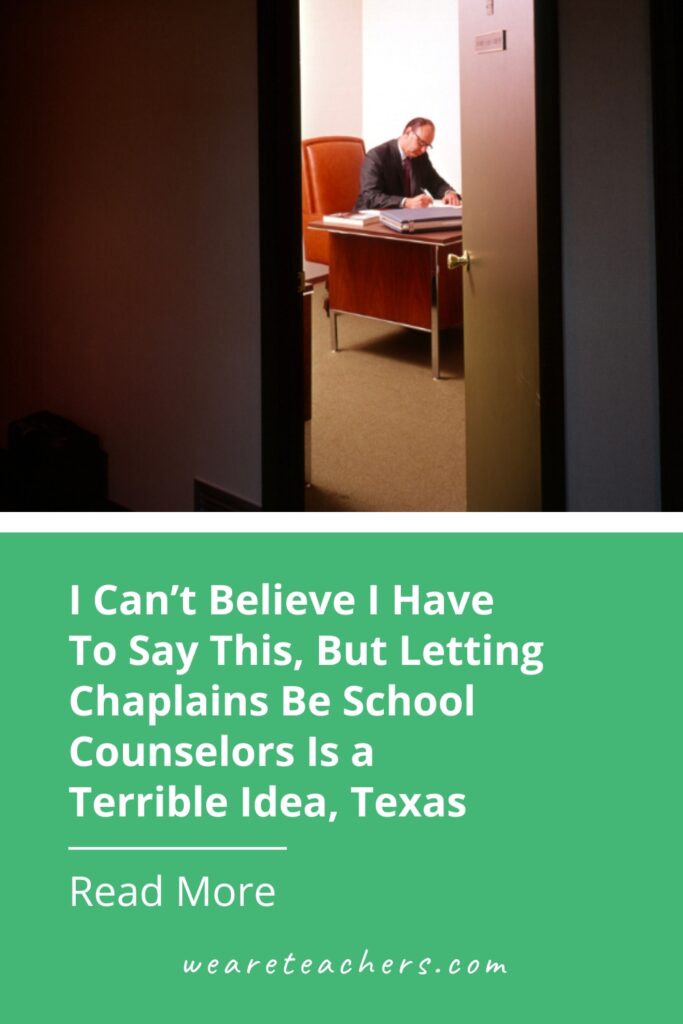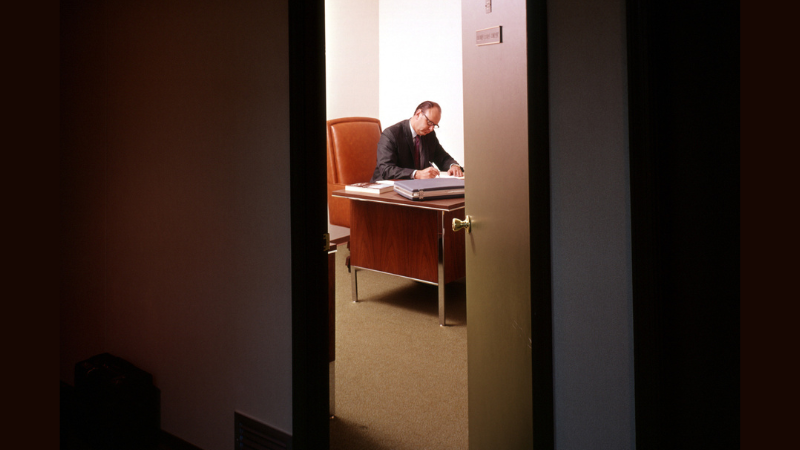I am a lifelong Texan. Despite its serious and glaring flaws, I love my state. When you move past the fancy boys in the capitol (most of whom got there via carefully gerrymandered voting maps, but that is an article for another day), Texas is filled with mostly wonderful people, quick to invite you to their mesquite barbecues or help you move your car onto blocks during a flash flood.
I am also a Christian, though I am often deeply frustrated with my Christian peers. Sometimes I think such awful things about them that, to quote Christian writer Anne Lamott, “I cannot even say them out loud because they would make Jesus want to drink gin straight out of the cat dish.” However, I know many members of clergy—including two chaplains—and am lucky that my church experiences have been mostly positive apart from a disturbing incident in my ultra-conservative hometown.
Finally, I am also a former public school teacher and spent my career in two different districts in Houston. I’ve seen the problems in our schools up close, way closer than pretty much anyone in the capitol would dare to toe their precious Luccheses.
And I cannot believe that I’m having to write about why Texas’ recent passing of a bill allowing chaplains to serve as school counselors is such a terrible idea.
But even if I can’t believe it, I’m at least very qualified to offer the following critique on a decision made in Texas to put “more God” in schools.
Why Letting Chaplains Be School Counselors Is a Bad Idea
1. They are not qualified to provide counseling services to children.
School counselors in Texas are required to complete a Master’s in Counseling program from an accredited institution, pass a school counselor certification exam from the Texas State Board of Education, and have at least two years of teaching experience. According to the American School Counselor Association, their training and position qualify them to provide “instruction, appraisal, and advisement and short-term counseling to students and referral services to students and their families.” They know the warning signs of depression, suicide, abuse, and neglect in children. Counselors are also educated on eating disorders, bullying, substance abuse, and a number of other complex issues as well as how to respond to them.
Chaplains, alternatively, are qualified to provide “spiritual care.”
2. They lack crucial education for other aspects of school counseling.
Between the experiential knowledge acquired in teaching and the education in their counseling program, school counselors in Texas are uniquely qualified to address issues children are facing that relate to school. They know best practices for interventions for absenteeism. When students have issues in the classroom, school counselors know how school works—on a “I have personally run this myself” level, not a “I sat in classrooms for 12 years” level. They know FERPA and IDEA inside and out, plus NACAC, DAP, PIA, PEIMS, and about a hundred other acronyms that represent complex systems and policies.
But most critically, high school counselors have to undergo rigorous training for career and college pathways to be able to provide guidance to students and their families. They know whether to recommend Advanced Placement, International Baccalaureate, Dual Enrollment, or Dual Credit courses (and what will be the best choice based on that student’s specific college goals and prior academic history). They know how to build relationships with college representatives, how to create a high school profile, and how to write the best letter of recommendation.
Chaplains do not have any of this training or knowledge. Yes, arguably some of the lower-stakes pieces are things that could be learned on a job, but the higher-stakes elements leave kids vulnerable to mistakes that have potentially life-altering consequences. We cannot afford to let chaplains “figure it out as they go” when it comes to FERPA.
3. It’s a violation of the Establishment Clause (separation of church and state).
You may recall that the Establishment Clause of the First Amendment not only prohibits the government from establishing a religion, but it also prohibits the government from favoring certain religions (and favoring religion over non-religion). As a result, schools and their officials are required to be neutral on religion while carrying out their duties.
Texas shot itself in the foot with this one. Lowering counseling certification standards to allow faith-based workers to serve as counselors is an egregious example of favoring religion over non-religion.
Every time the religious right fires up its “We need God back in schools” talking point, I’m always puzzled at their logic. No one is saying students can’t pray in schools (that would also be a First Amendment violation) or going up and down the hallways spraying God deterrent*. If you believe God is all-powerful, isn’t God already in schools? Hasn’t God always been in schools?
Luckily, I suppose, for believers, God will continue to be in schools when we have completely unqualified people providing counseling services to our children.
*aka Axe Body Spray
Is your district hiring a chaplain as a counselor? File a complaint with the Department of Education’s Office of Civil Rights.
For more articles like this one, plus tips, tricks, and ideas for teachers, sign up for our free newsletters.


